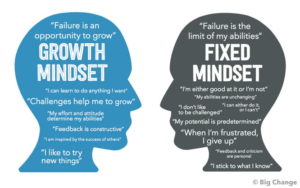Picture this: you have a sudden idea about something big you want to do or achieve. It’s one of those ideas that is accompanied by an emotion so intense that you get a little ball of excitement in your gut. Something about it just feels right; like it was something you were always meant to do.
You run full speed ahead with this idea during the first few days (or even weeks), but then you suddenly feel the excitement begin to fade away. What seemed like a good idea when you had that first initial spark now creates some doubt, too. You give up on the idea, and you feel ashamed that you lost the motivation to see it through until the end.
What is motivation?
The problem with this scenario isn’t that you lost motivation – it’s that you misunderstood the definition of motivation in the first place.
Motivation isn’t simply the desire to achieve something, but the combination of three crucial factors: activation, persistence, and intensity.
- Activation is the action(s) that follows a decision to do something.
- Persistence is the repetition of the action(s) that follows a decision in the face of obstacles.
- Intensity is the amount of concentration and effort you put into your actions.
When does motivation fail?
No matter who you are or what your goals are, you’ll find that the ‘intensity’ part of the motivation equation ebbs and flows throughout the process. The key to remaining motivated is to continue activation and persistence, even when intensity falters. If you keep at it, continued activation and persistence will reignite the intensity.
3 ways to stay consistent with your goals
Some days, you will be filled with doubts about your goals. They may feel like too much work, or you may feel like you don’t have the personality or skills to achieve them. On these days, staying consistent is more important than ever. The following three strategies will help keep you on track during the bad days:
Engage in regular goal setting
Oftentimes, people think they need to write down their goals once, smack a sticky note on their bathroom mirror, and they’re good to go.
In actuality, goal setting is much more effective when it is split up over time into small, actionable steps.
Goals should be established annually, quarterly, monthly, and weekly. To do this, you’ll want to start with the big picture and narrow your focus down from there. Start by writing out what you would like to accomplish over the next year. Then, write down what you would like to achieve in each three-month block.
At the beginning of each month, look at these goals and write out specific steps you can take to achieve a given goal by the end of the month. Do the same at the beginning of each week. At the end of the week/month, look back at what you’ve accomplished.
You’ll find that your goals change to some (small or large) degree throughout this process – and that’s okay!
Cultivate a support group
We’re often our own worst critics. When you set a goal for yourself, try to make connections with others who have the same goals or who have accomplished what you’re setting out to do.
For example, if you’re trying to get into shape, surround yourself with people who also prioritize a healthy lifestyle. If you’re trying to start a restaurant, network with other restaurant owners in the area.
These connections can be a huge support when you’re feeling down and want to give up.
Reframe your definition of failure
Many people are brought up believing that failure is something we should avoid. In truth, failure is a normal part of the human experience and can’t be avoided. Knowing that you will fail, how can you embrace it?
Embrace failure by recognizing its function – to help you grow. Regardless of your goals, there is a lot of learning involved. Understanding that you shouldn’t already be good at the thing you’re learning will enable you to give yourself some grace, consider what you can take away from the experience to improve and have hope.
Finally, don’t forget to take a moment to celebrate your successes! It can be easy to spend more time dwelling on your failures than your wins.
Need help staying motivated to exercise and eat right?
One of the hardest goals to stick to is the goal to change one’s physical health through regular exercise and healthy eating.
This guide to staying consistent with weight loss discusses 11 tips to help you stay motivated and take persistent action to achieve your goals – even when the intensity part of motivation is missing.
